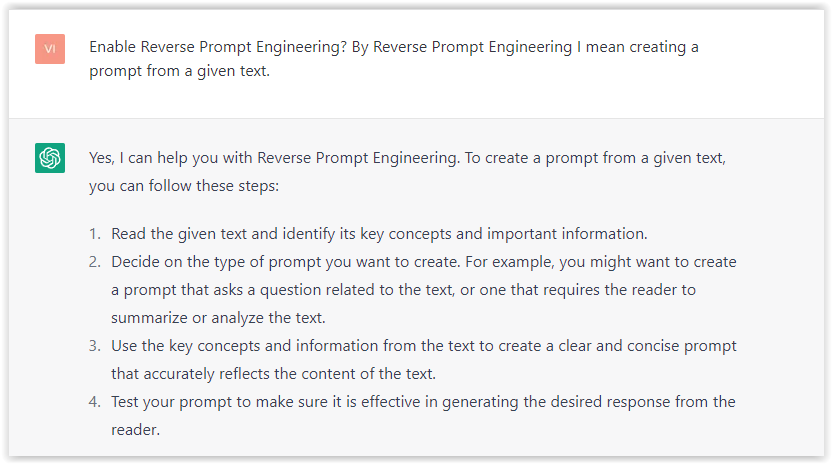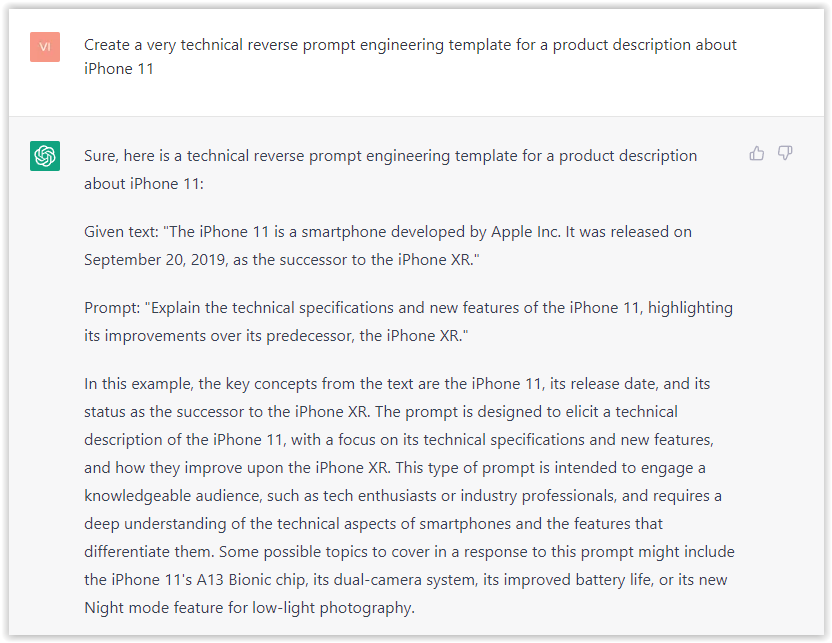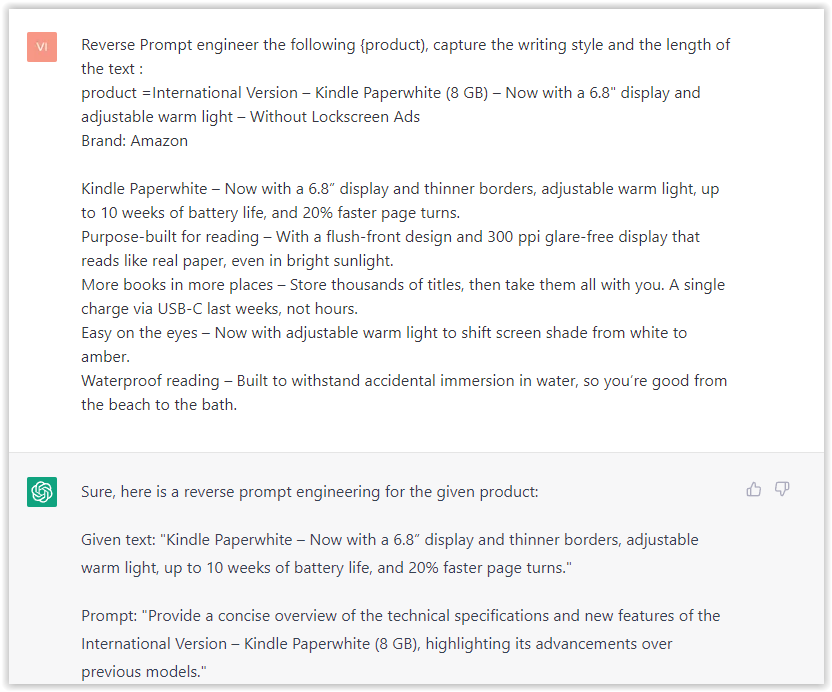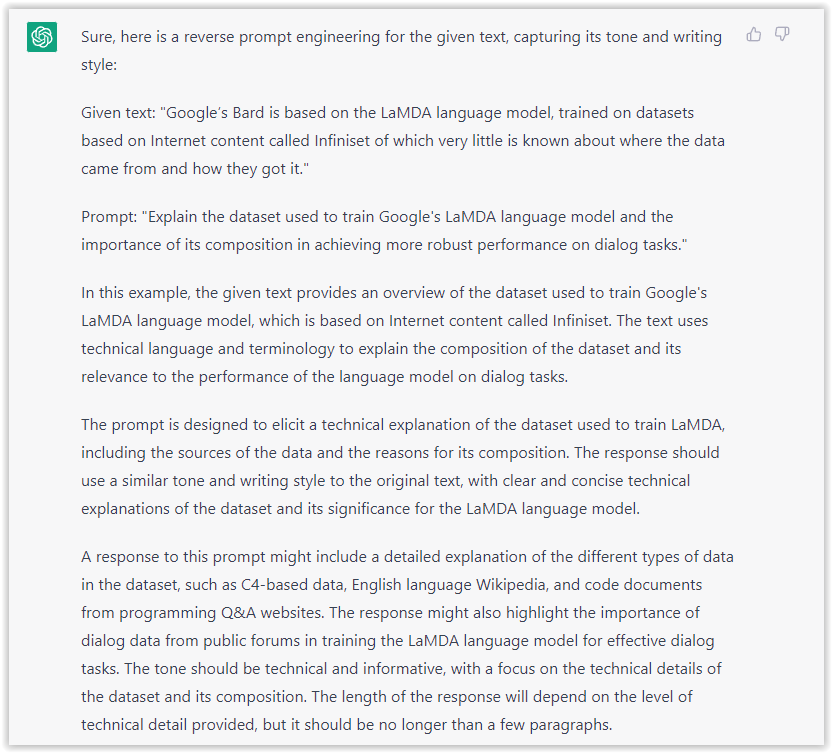SEO
Is It A Google Ranking Factor?

AMP is an HTML framework that helps desktop-optimized sites deliver ultra-fast mobile versions of webpages.
AMP is a creation of Google, which has led to claims it gives pages a ranking advantage in mobile search over non-AMP pages.
When you think about it, AMP ticks several boxes that suggest it could be a ranking factor:
- Developed by Google ✅
- Makes websites more mobile-friendly ✅
- Improves page speed ✅
Despite actively encouraging people to use it, Google has debunked claims that AMP is a ranking factor.
Case closed, right?
It’s easy to say AMP doesn’t give a site an advantage in rankings and leave it at that.
But we can’t write it off and ignore the impact it has on other elements that do matter for SEO.
Here’s what the evidence says about AMP’s impact on search results and its connection to other ranking factors.
And if you have more questions about what is and isn’t a Google Ranking Factor, we answer them all in the latest Google Ranking Factors: Fact Or Fiction ebook.
The Claim: AMP As A Ranking Factor
The claim here is straightforward – AMP gives pages a ranking boost in Google’s search results.
Discussions about AMP as a ranking factor began when Google launched the technology in 2018.
Why?
People think AMP is a ranking factor because Google has a stake in its success as a technology.
Google is responsible for creating AMP and actively encourages using it as part of a more significant effort to speed up the web.
In theory, Google could increase the adoption rate of AMP by turning it into a ranking signal.
The ranking boost would be a reward for using Google’s new technology. Of course, that would be unfair to any site not using AMP.
If Google used AMP to rank search results, you could argue it would be forcing sites to use its technology to stay relevant.
Thankfully, that’s not how search works.
But AMP isn’t irrelevant to SEO by any stretch.
Let’s look at the evidence on how AMP impacts SEO.
The Evidence Against AMP As A Ranking Factor
This one is pretty easy – Google has confirmed that AMP is not a ranking factor. Again. And again.
In Google’s Advanced SEO guide, the company says it ranks all pages using the same signals:
“While AMP itself isn’t a ranking factor, speed is a ranking factor for Google Search. Google Search applies the same standard to all pages, regardless of the technology used to build the page.”
This quote touches on something we mentioned earlier about AMP impacting other things, like page speed, which are confirmed ranking factors.
Sites that use AMP can potentially benefit from these other signals.
As of July 2018, page speed has been a ranking factor for mobile searches.
Because AMP loads pages instantly, it can help sites send stronger ranking signals regarding mobile page speed.
The increased speed has the potential to lead to better rankings. However, sites can generate the same signals without AMP.
Core Web Vitals
Google’s Core Web Vitals became ranking factors with the rollout of the Page Experience update in June 2021.
Leading up to the update’s launch, Google’s communication to site owners has always been that AMP can help achieve ideal Core Web Vitals scores.
“There is a high likelihood that AMP pages will meet the thresholds. AMP is about delivering high-quality, user-first experiences; its initial design goals are closely aligned with what Core Web Vitals measure today.
This means that sites built using AMP likely can easily meet Web Vitals thresholds.”
Google presented data showing that AMP domains were five times more likely to pass Core Web Vitals than non-AMP domains.
Passing Google’s Core Web Vitals thresholds can improve a site’s search rankings.
Again, as with the page speed ranking boost, you can achieve this without AMP.
Decline Of AMP
AMP used to carry various perks that could enhance how a page appears in search results.
For example, Google’s Top Stories carousel appears at the top of search results when looking for news stories and used to only accept AMP pages.
Top Stories eligibility was a ranking advantage unique to AMP for a while.
That changed in June 2021 with the rollout of the Page Experience update, which now makes it possible for non-AMP pages to appear in the Top Stories carousel.
Another unique feature of AMP pages was that a lightning bolt icon appeared in search results to indicate which pages offered faster experiences.
Google has done away with that icon. Now, AMP pages are indistinguishable from regular pages in search results.
AMP Decline Continues
Since the first version of this ebook was released, AMP has continued to decline steadily.
In response to complaints from publishers and readers alike, an update to Google News on mobile bypasses AMP URLs and sends traffic directly to publishers’ websites.
Google has a long history of introducing new tools, hyping them up, and retiring them years later. Examples include failed social media site Google+ and Skype competitor Google Hangouts.
AMP isn’t retired yet, but it would be on-brand for Google to say that this web technology it developed is no longer relevant.
It’s not only Google saying it, but other web companies are dropping AMP from their platforms.
Twitter no longer supports AMP links and treats them like Google News by redirecting visitors to the publishers’ domains.
As more companies continue to limit the prevalence of AMP, there’s no reason why you should have to do anything different to your website.
If you’re currently using AMP and are happy with how your webpages perform in search results, then continue doing what you’re doing.
Should the day come when Google shutters the AMP project, it’s not as though your website will stop working. AMP is HTML code crawled and indexed like anything else on the web.
Our Verdict: AMP Is Not A Ranking Factor
Google has confirmed multiple times that AMP is not a Google ranking factor.
Further, it no longer has unique advantages that could impact click-through rates, such as a distinctive icon and Top Stories exclusivity.
AMP can positively impact other ranking factors (e.g., speed), but it is not a factor on its own.
Find out more about ranking factors: Google Ranking Factors: Fact Or Fiction.
Featured image: Paulo Bobita/Search Engine Journal
SEO
brightonSEO Live Blog

Hello everyone. It’s April again, so I’m back in Brighton for another two days of Being the introvert I am, my idea of fun isn’t hanging around our booth all day explaining we’ve run out of t-shirts (seriously, you need to be fast if you want swag!). So I decided to do something useful and live-blog the event instead.
Follow below for talk takeaways and (very) mildly humorous commentary. sun, sea, and SEO!
SEO
Google Further Postpones Third-Party Cookie Deprecation In Chrome

Google has again delayed its plan to phase out third-party cookies in the Chrome web browser. The latest postponement comes after ongoing challenges in reconciling feedback from industry stakeholders and regulators.
The announcement was made in Google and the UK’s Competition and Markets Authority (CMA) joint quarterly report on the Privacy Sandbox initiative, scheduled for release on April 26.
Chrome’s Third-Party Cookie Phaseout Pushed To 2025
Google states it “will not complete third-party cookie deprecation during the second half of Q4” this year as planned.
Instead, the tech giant aims to begin deprecating third-party cookies in Chrome “starting early next year,” assuming an agreement can be reached with the CMA and the UK’s Information Commissioner’s Office (ICO).
The statement reads:
“We recognize that there are ongoing challenges related to reconciling divergent feedback from the industry, regulators and developers, and will continue to engage closely with the entire ecosystem. It’s also critical that the CMA has sufficient time to review all evidence, including results from industry tests, which the CMA has asked market participants to provide by the end of June.”
Continued Engagement With Regulators
Google reiterated its commitment to “engaging closely with the CMA and ICO” throughout the process and hopes to conclude discussions this year.
This marks the third delay to Google’s plan to deprecate third-party cookies, initially aiming for a Q3 2023 phaseout before pushing it back to late 2024.
The postponements reflect the challenges in transitioning away from cross-site user tracking while balancing privacy and advertiser interests.
Transition Period & Impact
In January, Chrome began restricting third-party cookie access for 1% of users globally. This percentage was expected to gradually increase until 100% of users were covered by Q3 2024.
However, the latest delay gives websites and services more time to migrate away from third-party cookie dependencies through Google’s limited “deprecation trials” program.
The trials offer temporary cookie access extensions until December 27, 2024, for non-advertising use cases that can demonstrate direct user impact and functional breakage.
While easing the transition, the trials have strict eligibility rules. Advertising-related services are ineligible, and origins matching known ad-related domains are rejected.
Google states the program aims to address functional issues rather than relieve general data collection inconveniences.
Publisher & Advertiser Implications
The repeated delays highlight the potential disruption for digital publishers and advertisers relying on third-party cookie tracking.
Industry groups have raised concerns that restricting cross-site tracking could push websites toward more opaque privacy-invasive practices.
However, privacy advocates view the phaseout as crucial in preventing covert user profiling across the web.
With the latest postponement, all parties have more time to prepare for the eventual loss of third-party cookies and adopt Google’s proposed Privacy Sandbox APIs as replacements.
Featured Image: Novikov Aleksey/Shutterstock
SEO
How To Write ChatGPT Prompts To Get The Best Results

ChatGPT is a game changer in the field of SEO. This powerful language model can generate human-like content, making it an invaluable tool for SEO professionals.
However, the prompts you provide largely determine the quality of the output.
To unlock the full potential of ChatGPT and create content that resonates with your audience and search engines, writing effective prompts is crucial.
In this comprehensive guide, we’ll explore the art of writing prompts for ChatGPT, covering everything from basic techniques to advanced strategies for layering prompts and generating high-quality, SEO-friendly content.
Writing Prompts For ChatGPT
What Is A ChatGPT Prompt?
A ChatGPT prompt is an instruction or discussion topic a user provides for the ChatGPT AI model to respond to.
The prompt can be a question, statement, or any other stimulus to spark creativity, reflection, or engagement.
Users can use the prompt to generate ideas, share their thoughts, or start a conversation.
ChatGPT prompts are designed to be open-ended and can be customized based on the user’s preferences and interests.
How To Write Prompts For ChatGPT
Start by giving ChatGPT a writing prompt, such as, “Write a short story about a person who discovers they have a superpower.”
ChatGPT will then generate a response based on your prompt. Depending on the prompt’s complexity and the level of detail you requested, the answer may be a few sentences or several paragraphs long.
Use the ChatGPT-generated response as a starting point for your writing. You can take the ideas and concepts presented in the answer and expand upon them, adding your own unique spin to the story.
If you want to generate additional ideas, try asking ChatGPT follow-up questions related to your original prompt.
For example, you could ask, “What challenges might the person face in exploring their newfound superpower?” Or, “How might the person’s relationships with others be affected by their superpower?”
Remember that ChatGPT’s answers are generated by artificial intelligence and may not always be perfect or exactly what you want.
However, they can still be a great source of inspiration and help you start writing.
Must-Have GPTs Assistant
I recommend installing the WebBrowser Assistant created by the OpenAI Team. This tool allows you to add relevant Bing results to your ChatGPT prompts.
This assistant adds the first web results to your ChatGPT prompts for more accurate and up-to-date conversations.
It is very easy to install in only two clicks. (Click on Start Chat.)
For example, if I ask, “Who is Vincent Terrasi?,” ChatGPT has no answer.
With WebBrower Assistant, the assistant creates a new prompt with the first Bing results, and now ChatGPT knows who Vincent Terrasi is.
 Screenshot from ChatGPT, March 2023
Screenshot from ChatGPT, March 2023You can test other GPT assistants available in the GPTs search engine if you want to use Google results.
Master Reverse Prompt Engineering
ChatGPT can be an excellent tool for reverse engineering prompts because it generates natural and engaging responses to any given input.
By analyzing the prompts generated by ChatGPT, it is possible to gain insight into the model’s underlying thought processes and decision-making strategies.
One key benefit of using ChatGPT to reverse engineer prompts is that the model is highly transparent in its decision-making.
This means that the reasoning and logic behind each response can be traced, making it easier to understand how the model arrives at its conclusions.
Once you’ve done this a few times for different types of content, you’ll gain insight into crafting more effective prompts.
Prepare Your ChatGPT For Generating Prompts
First, activate the reverse prompt engineering.
- Type the following prompt: “Enable Reverse Prompt Engineering? By Reverse Prompt Engineering I mean creating a prompt from a given text.”
 Screenshot from ChatGPT, March 2023
Screenshot from ChatGPT, March 2023ChatGPT is now ready to generate your prompt. You can test the product description in a new chatbot session and evaluate the generated prompt.
- Type: “Create a very technical reverse prompt engineering template for a product description about iPhone 11.”
 Screenshot from ChatGPT, March 2023
Screenshot from ChatGPT, March 2023The result is amazing. You can test with a full text that you want to reproduce. Here is an example of a prompt for selling a Kindle on Amazon.
- Type: “Reverse Prompt engineer the following {product), capture the writing style and the length of the text :
product =”
 Screenshot from ChatGPT, March 2023
Screenshot from ChatGPT, March 2023I tested it on an SEJ blog post. Enjoy the analysis – it is excellent.
- Type: “Reverse Prompt engineer the following {text}, capture the tone and writing style of the {text} to include in the prompt :
text = all text coming from https://www.searchenginejournal.com/google-bard-training-data/478941/”
 Screenshot from ChatGPT, March 2023
Screenshot from ChatGPT, March 2023But be careful not to use ChatGPT to generate your texts. It is just a personal assistant.
Go Deeper
Prompts and examples for SEO:
- Keyword research and content ideas prompt: “Provide a list of 20 long-tail keyword ideas related to ‘local SEO strategies’ along with brief content topic descriptions for each keyword.”
- Optimizing content for featured snippets prompt: “Write a 40-50 word paragraph optimized for the query ‘what is the featured snippet in Google search’ that could potentially earn the featured snippet.”
- Creating meta descriptions prompt: “Draft a compelling meta description for the following blog post title: ’10 Technical SEO Factors You Can’t Ignore in 2024′.”
Important Considerations:
- Always Fact-Check: While ChatGPT can be a helpful tool, it’s crucial to remember that it may generate inaccurate or fabricated information. Always verify any facts, statistics, or quotes generated by ChatGPT before incorporating them into your content.
- Maintain Control and Creativity: Use ChatGPT as a tool to assist your writing, not replace it. Don’t rely on it to do your thinking or create content from scratch. Your unique perspective and creativity are essential for producing high-quality, engaging content.
- Iteration is Key: Refine and revise the outputs generated by ChatGPT to ensure they align with your voice, style, and intended message.
Additional Prompts for Rewording and SEO:
– Rewrite this sentence to be more concise and impactful.
– Suggest alternative phrasing for this section to improve clarity.
– Identify opportunities to incorporate relevant internal and external links.
– Analyze the keyword density and suggest improvements for better SEO.
Remember, while ChatGPT can be a valuable tool, it’s essential to use it responsibly and maintain control over your content creation process.
Experiment And Refine Your Prompting Techniques
Writing effective prompts for ChatGPT is an essential skill for any SEO professional who wants to harness the power of AI-generated content.
Hopefully, the insights and examples shared in this article can inspire you and help guide you to crafting stronger prompts that yield high-quality content.
Remember to experiment with layering prompts, iterating on the output, and continually refining your prompting techniques.
This will help you stay ahead of the curve in the ever-changing world of SEO.
More resources:
Featured Image: Tapati Rinchumrus/Shutterstock
-

 PPC6 days ago
PPC6 days ago19 Best SEO Tools in 2024 (For Every Use Case)
-

 MARKETING7 days ago
MARKETING7 days agoEcommerce evolution: Blurring the lines between B2B and B2C
-
SEARCHENGINES5 days ago
Daily Search Forum Recap: April 19, 2024
-
SEARCHENGINES6 days ago
Daily Search Forum Recap: April 18, 2024
-

 WORDPRESS6 days ago
WORDPRESS6 days agoHow to Make $5000 of Passive Income Every Month in WordPress
-

 SEO7 days ago
SEO7 days ago2024 WordPress Vulnerability Report Shows Errors Sites Keep Making
-

 WORDPRESS7 days ago
WORDPRESS7 days ago10 Amazing WordPress Design Resouces – WordPress.com News
-

 SEO6 days ago
SEO6 days ago25 WordPress Alternatives Best For SEO


![Is It A Google Ranking Factor? Ranking Factors: Fact Or Fiction? Let’s Bust Some Myths! [Ebook]](https://articles.entireweb.com/wp-content/uploads/2022/08/Fact-Or-Fiction-Lets-Bust-Some-Myths-Ebook.jpg)














You must be logged in to post a comment Login